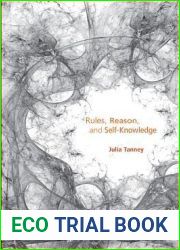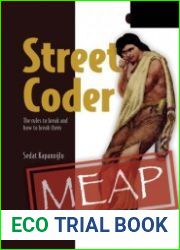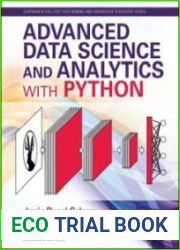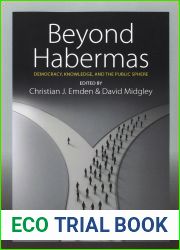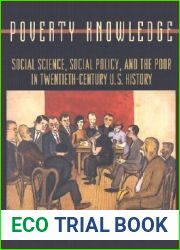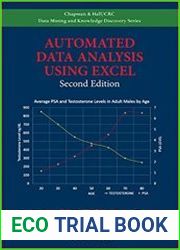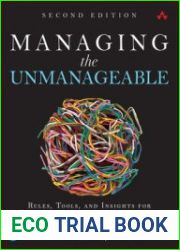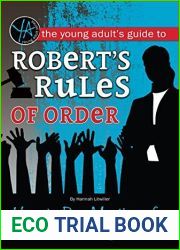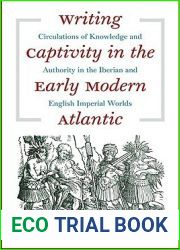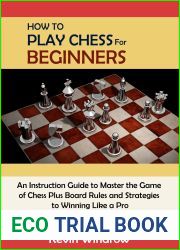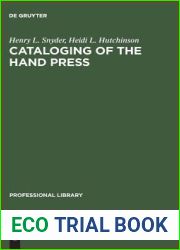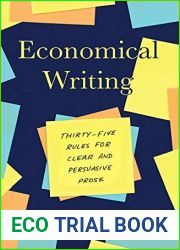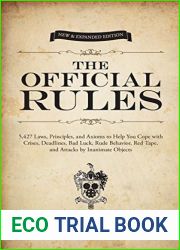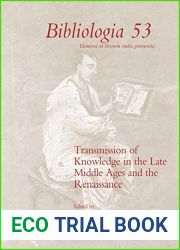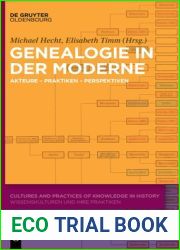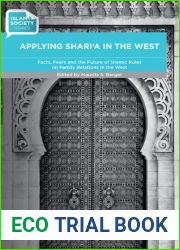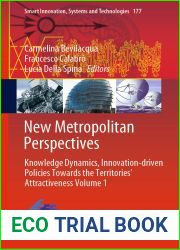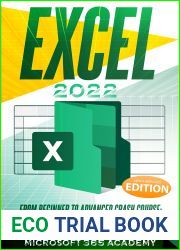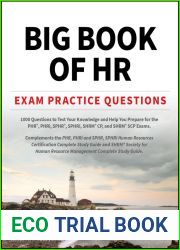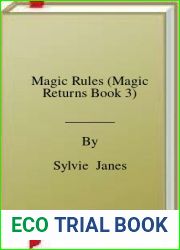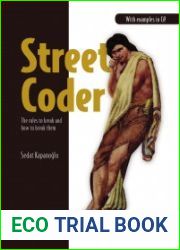
BOOKS - Rules, Reason, and Self-Knowledge

Rules, Reason, and Self-Knowledge
Author: Julia Tanney
Year: January 8, 2013
Format: PDF
File size: PDF 1.8 MB
Language: English

Year: January 8, 2013
Format: PDF
File size: PDF 1.8 MB
Language: English

The book "Rules, Reason, and Self-Knowledge" by Julia Tanney offers a critical examination of the dominant approach in philosophy of mind, which posits that cognition is a form of information processing based on physicalism and functionalism. This approach has been the foundation of cognitivism, which has dominated philosophy and special sciences for the past fifty years. The author challenges this orthodoxy by untangling its internal inconsistencies, starting with the paradoxes of irrationality, and arriving at a view that emphasizes the importance of thick descriptions and sociolinguistic practices in understanding the mind. According to Tanney, the traditional approach to studying the mind, which relies on metaphysical and empirical methods, is inadequate for capturing the complexity of human cognition. Instead, she advocates for a more nuanced understanding of the mind through conceptual cartography, which prioritizes the role of context and circumstance in shaping our thoughts and behaviors. This approach allows for a more situated and practical understanding of the mind, rather than relying solely on scientific explanation. Tanney argues that the mind is not just a product of brain activity, but is deeply rooted in our social and cultural practices, and that rational explanations are embedded in these practices. She draws on the work of philosophers such as Ryle and Wittgenstein to challenge the assumptions of cognitivism and to develop a more holistic understanding of the mind.
Книга «Правила, разум и самопознание» Джулии Танни предлагает критический анализ доминирующего подхода в философии разума, который утверждает, что познание является формой обработки информации, основанной на физикализме и функционализме. Этот подход был основой когнитивизма, который доминировал в философии и специальных науках в течение последних пятидесяти лет. Автор бросает вызов этой ортодоксии, распутывая ее внутренние несоответствия, начиная с парадоксов иррациональности, и приходя к точке зрения, которая подчеркивает важность толстых описаний и социолингвистических практик в понимании разума. По мнению Танни, традиционный подход к изучению разума, опирающийся на метафизические и эмпирические методы, недостаточен для улавливания сложности человеческого познания. Вместо этого она выступает за более тонкое понимание разума через концептуальную картографию, которая отдает приоритет роли контекста и обстоятельств в формировании наших мыслей и поведения. Этот подход позволяет более локализованное и практическое понимание ума, а не полагаться исключительно на научное объяснение. Танни утверждает, что разум является не просто продуктом мозговой деятельности, но глубоко укоренился в наших социальных и культурных практиках, и что рациональные объяснения встроены в эти практики. Она опирается на работы таких философов, как Райл и Витгенштейн, чтобы бросить вызов предположениям когнитивизма и развить более целостное понимание ума.
livre Règles, intelligence et connaissance de soi de Julia Tanny propose une analyse critique de l'approche dominante dans la philosophie de l'esprit, qui affirme que la connaissance est une forme de traitement de l'information basée sur le physicalisme et le fonctionnalisme. Cette approche a été la base du cognitivisme qui a dominé la philosophie et les sciences spéciales au cours des cinquante dernières années. L'auteur récuse cette orthodoxie en démêlant ses incohérences internes, à commencer par les paradoxes de l'irrationalité, et en arrivant à un point de vue qui souligne l'importance des descriptions épaisses et des pratiques sociolinguistiques dans la compréhension de la raison. Selon Tanny, l'approche traditionnelle de l'étude de l'esprit, basée sur des méthodes métaphysiques et empiriques, est insuffisante pour capter la complexité de la connaissance humaine. Au lieu de cela, elle préconise une compréhension plus fine de l'esprit à travers une cartographie conceptuelle qui donne la priorité au rôle du contexte et des circonstances dans la formation de nos pensées et de nos comportements. Cette approche permet une compréhension plus localisée et pratique de l'esprit plutôt que de s'appuyer uniquement sur une explication scientifique. Tanny affirme que l'esprit n'est pas seulement le produit d'une activité cérébrale, mais qu'il est profondément ancré dans nos pratiques sociales et culturelles, et que des explications rationnelles sont intégrées dans ces pratiques. Elle s'appuie sur les travaux de philosophes comme Ryle et Wittgenstein pour défier les hypothèses du cognitivisme et développer une compréhension plus holistique de l'esprit.
libro Reglas, Razón y Autodescubrimiento de Julia Tanny ofrece un análisis crítico del enfoque dominante en la filosofía de la mente, que afirma que el conocimiento es una forma de procesamiento de la información basada en el fisicalismo y el funcionalismo. Este enfoque ha sido la base del cognitivismo que ha dominado la filosofía y las ciencias especiales durante los últimos cincuenta . autor desafía esta ortodoxia desentrañando sus inconsistencias internas, partiendo de las paradojas de la irracionalidad, y llegando a un punto de vista que subraya la importancia de las descripciones gruesas y las prácticas sociolingüísticas en la comprensión de la razón. Según Tanny, el enfoque tradicional del estudio de la mente, basado en métodos metafísicos y empíricos, no es suficiente para captar la complejidad de la cognición humana. En cambio, aboga por una comprensión más sutil de la razón a través de una cartografía conceptual que priorice el papel del contexto y las circunstancias en la formación de nuestros pensamientos y comportamientos. Este enfoque permite una comprensión más localizada y práctica de la mente, en lugar de depender exclusivamente de una explicación científica. Tanny sostiene que la mente no es simplemente un producto de la actividad cerebral, sino que está profundamente arraigada en nuestras prácticas sociales y culturales, y que las explicaciones racionales están incrustadas en estas prácticas. Se basa en el trabajo de filósofos como Ryle y Wittgenstein para desafiar las suposiciones del cognitivo y desarrollar una comprensión más holística de la mente.
O livro «As regras, a mente e a consciência», de Julia Tanny, oferece uma análise crítica da abordagem dominante na filosofia da mente, que afirma que o conhecimento é uma forma de processamento da informação baseada no fisicalismo e no funcionalismo. Esta abordagem foi a base da cognição que dominou a filosofia e as ciências especiais nos últimos cinquenta anos. O autor desafia esta ortodoxia, dissipando suas inconsistências internas, a começar pelos paradoxos da irracionalidade, e chegando a um ponto de vista que enfatiza a importância de descrições grossas e práticas sociolinguísticas na compreensão da mente. De acordo com Tanny, a abordagem tradicional do estudo da mente, baseada em métodos metafísicos e empíricos, não é suficiente para capturar a complexidade do conhecimento humano. Em vez disso, ela defende uma compreensão mais sutil da mente através de um mapeamento conceitual que prioriza o papel do contexto e das circunstâncias na formação dos nossos pensamentos e comportamentos. Esta abordagem permite uma compreensão mais localizada e prática da mente, em vez de depender exclusivamente de uma explicação científica. Tanny afirma que a mente não é apenas um produto da atividade cerebral, mas está profundamente enraizada em nossas práticas sociais e culturais, e que explicações racionais estão incorporadas a essas práticas. Baseia-se no trabalho de filósofos como Rail e Wittgenstein para desafiar as suposições cognitivas e desenvolver uma compreensão mais holística da mente.
Il libro «Regole, mente e coscienza» di Julia Tanni offre un'analisi critica dell'approccio dominante nella filosofia della mente, che sostiene che la conoscenza è una forma di elaborazione delle informazioni basata sul fisicalismo e sul funzionalismo. Questo approccio è stato la base del cognitivo che ha dominato la filosofia e le scienze speciali negli ultimi cinquant'anni. L'autore sfida questa ortodossia, sciogliendo le sue incongruenze interne, partendo dai paradossi dell'irrazionalità, e raggiungendo un punto di vista che sottolinea l'importanza delle descrizioni spesse e delle pratiche sociolinguistiche nella comprensione della mente. Secondo Tanni, l'approccio tradizionale allo studio della mente, basato su metodi metafisici ed empirici, non è sufficiente a cogliere la complessità della conoscenza umana. È invece favorevole a una maggiore comprensione della mente attraverso la mappatura concettuale, che dà priorità al ruolo del contesto e delle circostanze nella formazione dei nostri pensieri e comportamenti. Questo approccio consente una comprensione più localizzata e pratica della mente, piuttosto che affidarsi esclusivamente alla spiegazione scientifica. Tanny sostiene che la mente non è solo un prodotto dell'attività cerebrale, ma è profondamente radicata nelle nostre pratiche sociali e culturali, e che spiegazioni razionali sono integrate in queste pratiche. basa sul lavoro di filosofi come Ryle e Wittgenstein per sfidare i presupposti cognitivi e sviluppare una comprensione più olistica della mente.
Das Buch Rules, Mind and Self-Discovery von Julia Tanney bietet eine kritische Analyse des dominanten Ansatzes in der Philosophie des Geistes, der besagt, dass Kognition eine Form der Informationsverarbeitung ist, die auf Physikalismus und Funktionalismus basiert. Dieser Ansatz war die Grundlage des Kognitivismus, der die Philosophie und die Spezialwissenschaften in den letzten fünfzig Jahren dominiert hat. Der Autor fordert diese Orthodoxie heraus, indem er ihre inneren Widersprüche entwirrt, beginnend mit den Paradoxien der Irrationalität, und zu einem Standpunkt gelangt, der die Bedeutung dicker Beschreibungen und soziolinguistischer Praktiken für das Verständnis der Vernunft betont. Laut Tanney reicht der traditionelle Ansatz zur Erforschung der Vernunft, der sich auf metaphysische und empirische Methoden stützt, nicht aus, um die Komplexität der menschlichen Wahrnehmung zu erfassen. Stattdessen plädiert sie für ein subtileres Verständnis des Geistes durch eine konzeptionelle Kartographie, die der Rolle von Kontext und Umständen bei der Gestaltung unserer Gedanken und Verhaltensweisen Priorität einräumt. Dieser Ansatz ermöglicht ein lokalisierteres und praktischeres Verständnis des Geistes, anstatt sich ausschließlich auf eine wissenschaftliche Erklärung zu verlassen. Tanni argumentiert, dass der Geist nicht nur ein Produkt der Gehirnaktivität ist, sondern tief in unseren sozialen und kulturellen Praktiken verwurzelt ist und dass rationale Erklärungen in diese Praktiken eingebettet sind. Es stützt sich auf die Arbeit von Philosophen wie Ryle und Wittgenstein, um die Annahmen des Kognitivismus in Frage zu stellen und ein ganzheitlicheres Verständnis des Geistes zu entwickeln.
Książka Julii Tunney „Zasady, rozum i samoświadomość” oferuje krytyczną analizę dominującego podejścia w filozofii umysłu, która stwierdza, że poznanie jest formą przetwarzania informacji opartą na fizykalizmie i funkcjonalizmie. To podejście było podstawą poznawczego, który zdominował filozofię i nauki specjalne przez ostatnie pięćdziesiąt lat. Autor kwestionuje tę ortodoksję, nie angażując się w jej nieodłączne niespójności, zaczynając od paradoksów irracjonalności, i dochodząc do poglądu, który podkreśla znaczenie grubych opisów i praktyk socjolingwistycznych w zrozumieniu rozumu. Według Tunneya, tradycyjne podejście do badania umysłu, oparte na metafizycznych i empirycznych metodach, jest niewystarczające, aby uchwycić złożoność ludzkiego poznania. Zamiast tego opowiada się za bardziej niuansowanym zrozumieniem rozumu poprzez kartografię koncepcyjną, która priorytetowo traktuje rolę kontekstu i okoliczności w kształtowaniu naszych myśli i zachowań. Podejście to pozwala na bardziej zlokalizowane i praktyczne zrozumienie umysłu, zamiast polegać wyłącznie na naukowym wyjaśnieniu. Tunney twierdzi, że powód nie jest jedynie wytworem aktywności mózgu, ale jest głęboko osadzony w naszych praktykach społecznych i kulturowych, i że racjonalne wyjaśnienia są zawarte w tych praktykach. Czerpie z pracy filozofów takich jak Ryle i Wittgenstein, aby zakwestionować założenia kognitywizmu i rozwijać bardziej holistyczne zrozumienie umysłu.
הספר ”חוקים, היגיון וידע עצמי” מאת ג 'וליה טאני מציע ניתוח ביקורתי של הגישה השלטת בפילוסופיה של הנפש, הקובעת כי קוגניציה היא צורה של עיבוד מידע המבוסס על פיזיקליזם ופונקציונליזם. גישה זו הייתה הבסיס לקוגניטיביזם, ששלט בפילוסופיה ובמדעים מיוחדים במשך חמישים השנים האחרונות. המחבר קורא תיגר על אורתודוקסיה זו בכך שהוא מתיר את חוסר העקביות הטבועה בה, מתחיל בפרדוקסים של חוסר הגיון ומגיע להשקפה המדגישה את חשיבותם של תיאורים עבים ומנהגים סוציו ־ לשוניים בהבנת ההיגיון. לפי טאני, הגישה המסורתית לחקר המוח, המבוססת על שיטות מטאפיזיות ואמפיריות, אינה מספקת כדי ללכוד את מורכבות ההכרה האנושית. במקום זאת, היא דוגלת בהבנה מנואשת יותר של ההיגיון באמצעות קרטוגרפיה מושגית, המעדיפה את תפקיד ההקשר והנסיבות בעיצוב המחשבות וההתנהגויות שלנו. גישה זו מאפשרת הבנה מקומית ומעשית יותר של המוח, במקום להסתמך אך ורק על הסבר מדעי. טאני טוען שההיגיון אינו רק תוצר של פעילות מוחית, אלא טבוע עמוק במנהגים החברתיים והתרבותיים שלנו, היא מציירת את עבודתם של פילוסופים כמו רייל וויטגנשטיין כדי לאתגר את הנחות הקוגניטיביזם ולפתח הבנה הוליסטית יותר של הנפש.''
Julia Tunney'in "Rules, Reason and Self-Knowledge" (Kurallar, Akıl ve Benlik Bilgisi) kitabı, zihin felsefesindeki baskın yaklaşımın eleştirel bir analizini sunar; bu yaklaşım, bilişin fizikselliğe ve işlevselciliğe dayanan bir bilgi işleme biçimi olduğunu belirtir. Bu yaklaşım, son elli yıldır felsefeye ve özel bilimlere egemen olan bilişselciliğin temeli olmuştur. Yazar, bu ortodoksluğa, içsel tutarsızlıklarını çözerek, irrasyonellik paradokslarıyla başlayarak ve aklı anlamada kalın açıklamaların ve sosyo-dilbilimsel uygulamaların önemini vurgulayan bir görüşe vararak meydan okuyor. Tunney'e göre, metafizik ve ampirik yöntemlere dayanan zihin çalışmasına yönelik geleneksel yaklaşım, insan bilişinin karmaşıklığını yakalamak için yetersizdir. Bunun yerine, düşüncelerimizi ve davranışlarımızı şekillendirmede bağlam ve durumun rolünü önceliklendiren kavramsal haritacılık yoluyla daha ayrıntılı bir akıl anlayışını savunuyor. Bu yaklaşım, yalnızca bilimsel açıklamaya dayanmak yerine, zihnin daha yerel ve pratik bir şekilde anlaşılmasını sağlar. Tunney, aklın sadece beyin aktivitesinin bir ürünü olmadığını, sosyal ve kültürel uygulamalarımıza derinden gömüldüğünü ve rasyonel açıklamaların bu uygulamalara gömüldüğünü savunuyor. Ryle ve Wittgenstein gibi filozofların kognitivizm varsayımlarına meydan okumak ve daha bütünsel bir zihin anlayışı geliştirmek için çalışmalarını kullanır.
يقدم كتاب «القواعد والعقل والمعرفة الذاتية» لجوليا توني تحليلاً نقدياً للنهج السائد في فلسفة العقل، والذي ينص على أن الإدراك هو شكل من أشكال معالجة المعلومات القائمة على الفيزيائية والوظيفية. كان هذا النهج أساس الإدراك، الذي سيطر على الفلسفة والعلوم الخاصة على مدار الخمسين عامًا الماضية. يتحدى المؤلف هذه الأرثوذكسية من خلال فك تشابك تناقضاتها المتأصلة، بدءًا من مفارقات اللاعقلانية، والتوصل إلى رأي يؤكد على أهمية الأوصاف السميكة والممارسات الاجتماعية اللغوية في فهم العقل. وفقًا لتوني، فإن النهج التقليدي لدراسة العقل، استنادًا إلى الأساليب الميتافيزيقية والتجريبية، غير كافٍ لالتقاط تعقيد الإدراك البشري. بدلاً من ذلك، تدعو إلى فهم أكثر دقة للعقل من خلال رسم الخرائط المفاهيمي، والذي يعطي الأولوية لدور السياق والظروف في تشكيل أفكارنا وسلوكياتنا. يسمح هذا النهج بفهم محلي وعملي للعقل، بدلاً من الاعتماد فقط على التفسير العلمي. يجادل توني بأن العقل ليس مجرد نتاج لنشاط الدماغ، ولكنه متأصل بعمق في ممارساتنا الاجتماعية والثقافية، وأن التفسيرات العقلانية متأصلة في هذه الممارسات. تعتمد على عمل الفلاسفة مثل رايل وفيتجنشتاين لتحدي افتراضات الإدراك وتطوير فهم أكثر شمولية للعقل.
朱莉婭·坦尼(Julia Tanni)的《規則,理性和自我發現》一書對理性哲學的主導方法進行了批判性分析,認為認知是一種基於物理學和功能主義的信息處理形式。這種方法是認知主義的基礎,在過去的五十中主導了哲學和特殊科學。作者挑戰了這種正統觀念,從非理性的悖論開始,揭開了其內在的不一致之處,並提出了一種觀點,強調了厚厚的描述和社會語言實踐在理解理性中的重要性。根據坦尼(Tanny)的說法,基於形而上學和經驗方法的傳統理性研究方法不足以捕捉人類知識的復雜性。相反,她主張通過概念制圖學更深入地了解理性,該制圖學優先考慮上下文和情境在塑造我們的思想和行為中的作用。這種方法允許對思想進行更本地化和實用的理解,而不僅僅是依靠科學解釋。坦尼(Tanny)認為,理性不僅是大腦活動的產物,而且深深植根於我們的社會和文化實踐中,並且理性的解釋嵌入了這些實踐中。它借鑒了賴爾(Ryle)和維特根斯坦(Wittgenstein)等哲學家的著作,以挑戰認知主義的假設並發展對思想的更全面的理解。







